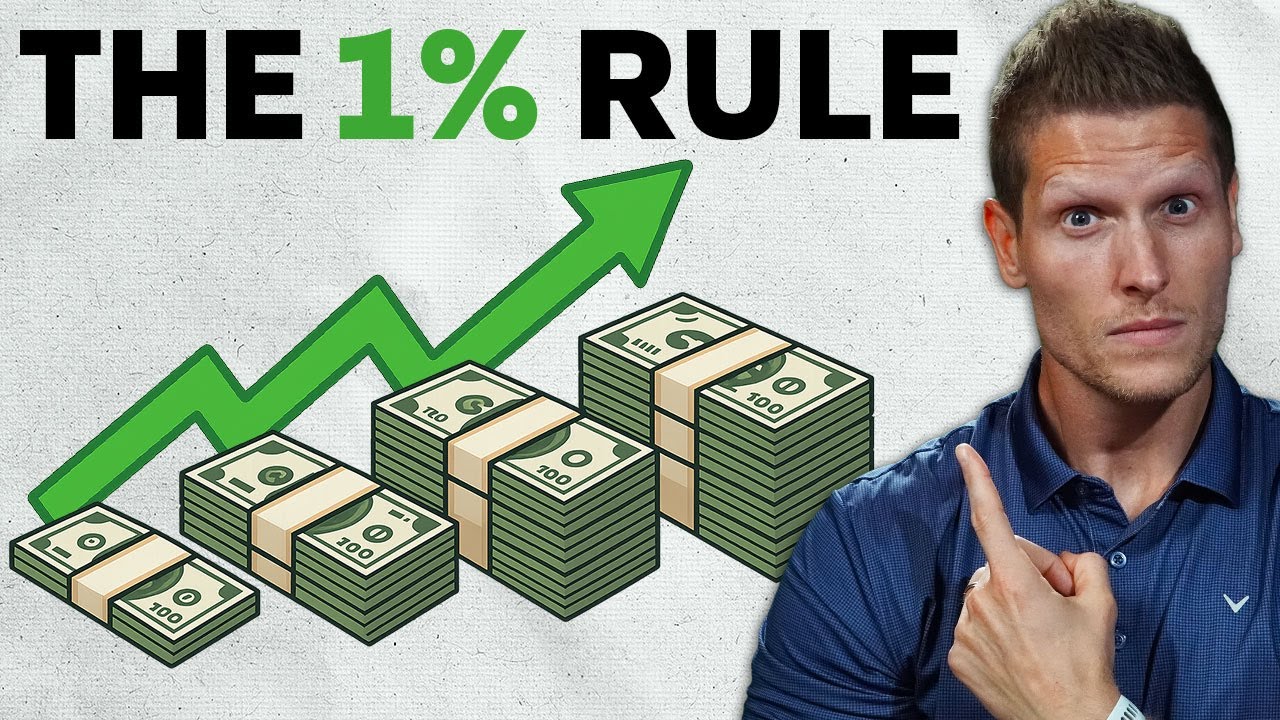If you are able, at birth, at the birth of your child, to invest the $1,550 to make your child a millionaire by age 65, what type of account would you choose, and how would you invest this money? Would you invest it as a lump sum, put it in a brokerage account, or consider a 529 plan? Something totally different? Can I be honest? We get this question all the time, every time we post about this young wealth multiplier, which you can get for free at moneyguy.com/resources. People are always asking, "Where do I put it? Where do I put it for my zero-year-old child?" So, let's help them out. I love it.
So the first question was, "Do I do a lump sum?" We're gonna do something else. Well, the way that we designed this, the mathematics behind the wealth multiplier, was to tell you what lump sum you should invest or could invest today to be worth a million dollars by the time your child reaches 65. So, in and of itself, the way to approach this exercise would be, you know, in the hospital, as soon as you leave the delivery room, before you get home with the baby, you're going to run by your favorite financial institution, and you're going to deposit $1,550 right there as a lump sum to invest.
Now, in terms of the number of accounts or the type of account, there are various options to consider. I'm going to start with the first one that, if this is the purpose, I probably would not recommend. The math we use to turn $1,550 into a million dollars requires a timeline to get your child from age 0 to 65. The goal here is for future retirement dollars, so using a 529 account for this specific purpose might not be the best choice. 529 accounts are typically used for college education or private K through 12 education, which will likely happen between ages 0 and 22, a much shorter timeline. Therefore, $1,550 likely won't turn into a million dollars by the time you need it for education expenses.
So, if I'm thinking about my goal of making my child a retirement millionaire, I probably wouldn't choose a 529 account for these dollars. If I'm not going with a 529 account, where should I potentially park this money? I mean, this question kind of amuses me because I think about the excitement of new parents, realizing that all it takes is a little less than two grand, and their child could potentially be a millionaire by the age of 65. But life doesn't work that way. Here's what's going to happen: when your child turns 18, they'll need to go to college, and you'll wonder how to pay for it. You might look at that account you set up and regret not putting it in a 529 account, especially if this is your only asset. Your account might have grown substantially by then, let's say from $1,550 to $35,000 or $40,000. At that point, you might be thinking, "Oh my gosh, I have to pay taxes on this to fund my child's education." Depending on your state, that could be as much as 25% of the account's value. So, if this is your only pot of money, you must commit to not using it for education expenses, because it will create problems. Imagine telling your child, "Sorry, you can't go to college because that's your millionaire fund." You definitely don't want to be in that situation.
So, my question here is, why does it matter so much when you have children? If you have money to set aside, you must immediately ask yourself, "What is the purpose?" That's what the entire origin story of the
financial order of operations is about. I want every dollar to have a purpose. So, if this money is intended for retirement at age 65, you must promise yourself not to use it for education expenses, as that will be the first thing someone will ask about. Your child may not attend college between ages 0 and 22, and you should prepare for other possibilities.
Now, if your ultimate goal is to turn this money into a million dollars, here's what I did to celebrate the birth of my child: I funded a 529 account. This was because my why at that point was to ensure that my child would have access to education. It doesn't have to be college; it could be technical school or any other form of education. I chose a 529 account because I wanted the flexibility of using it for education expenses.
The cool thing is that 529 accounts can be converted to Roth IRAs in the future. So, that's my choice. I pre-funded a 529 account for my newborn because I wanted the option of having that money available for education. What happens when they reach college age? Well, hopefully, I'll have saved specifically for that purpose, which wasn't addressed in the original questions. If I intend to use it to reach a million by age 65, where should I put it? If you overfund a 529 account, you have an escape hatch, as that money can be used for retirement or other purposes. However, you should be cautious because overfunding a 529 can limit your child's ability to make Roth IRA contributions in the future. It's important to teach them to manage their finances wisely. Instead of simply handing them money every year, encourage them to understand the value of a dollar. My choice would be to open a custodial account and invest it in a low-cost, diversified index fund for long-term growth. However, it's crucial to have clear goals and understand the potential consequences of your choices. Life can throw unexpected curveballs, so always have a plan and educate your child about financial responsibility.













